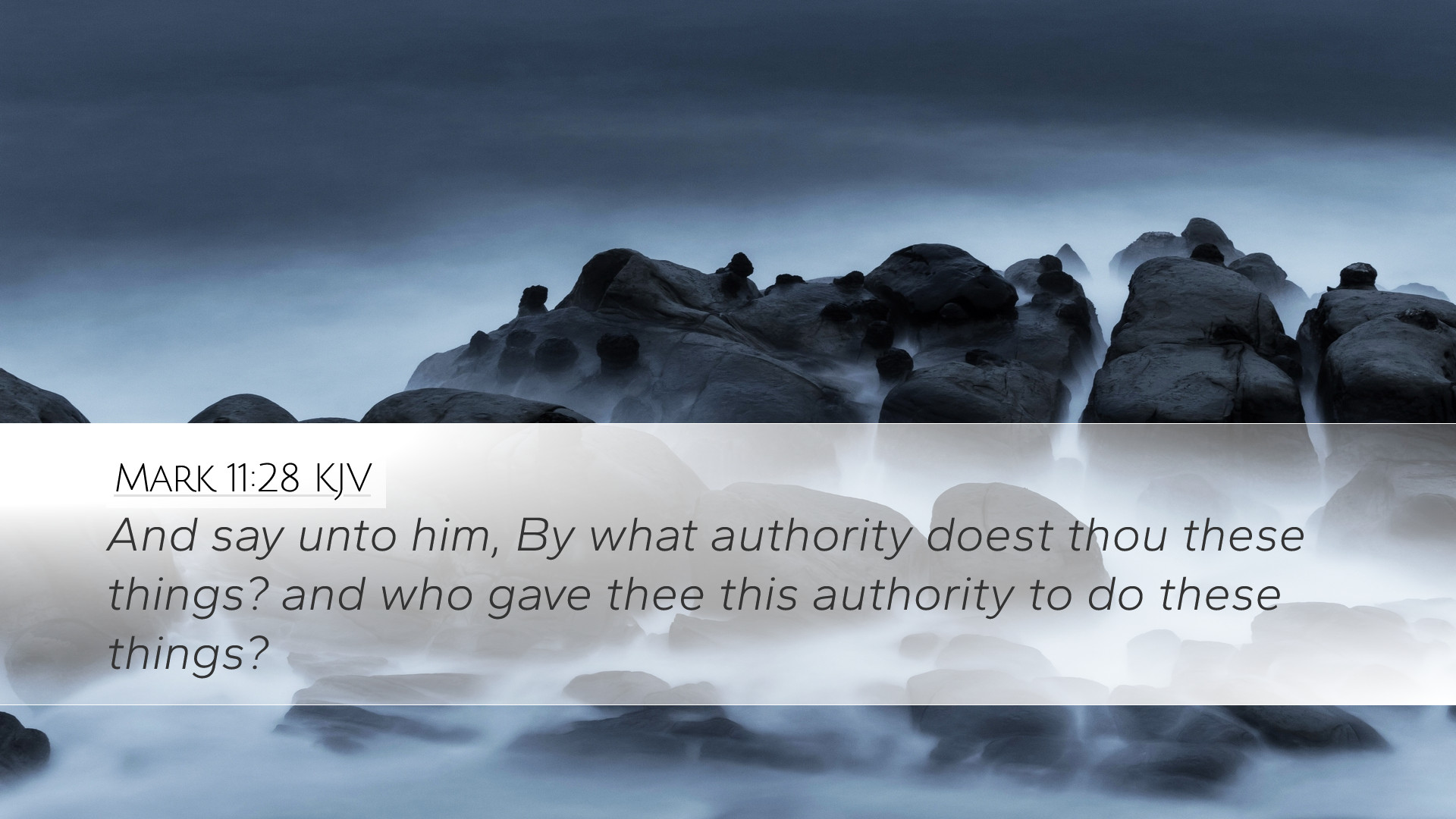Commentary on Mark 11:28
Mark 11:28 presents a significant moment in Jesus' ministry. The verse reads:
"And say unto him, By what authority doest thou these things? and who gave thee this authority to do these things?"
Contextual Analysis
This inquiry occurs after Jesus has triumphantly entered Jerusalem and performed several actions that challenge the established religious order, including the cleansing of the temple. The questioning leaders seek to undermine His authority, reflecting their deepening concern about His influence and the challenge He poses to their traditions.
Authority and Legitimacy
The question regarding authority in Mark 11:28 is of utmost importance. The Jewish leaders felt threatened not only by the actions of Jesus but also by their own loss of power:
- Matthew Henry notes that the question assumes a hierarchical religious structure, where authority is always sourced from established leaders.
- Albert Barnes emphasizes that the question reflects their ignorance of spiritual authority, as Jesus’ actions and teachings stem from divine providence.
- Adam Clarke adds that questioning authority is not merely a challenge to Jesus but an assertion of their own misplaced authority.
Jesus' Response
While the verse does not contain Jesus' response, understanding His subsequent actions provides insight into His authority. He often responded to challenges by asking probing questions, redirecting the focus from mere accusations to deeper truths.
- Matthew Henry elaborates on how Jesus frequently diverted questions back to His interrogators, exposing their hypocrisy.
- Albert Barnes explicates that Jesus’ ultimate authority comes from His divine mission, rooted in God’s purpose rather than human endorsement.
- Adam Clarke points out that Jesus establishes a vital principle about true authority: it originates from God, and ultimately every person's authority is accountable to divine will.
Theological Implications
This verse speaks profoundly to the nature of authority within the Church and individual believers:
- The source of authority is critical; earthly titles and positions must serve the greater purpose of conveying God’s truth.
- Jesus redefines authority, transforming it from hierarchical structures to a model based on servanthood and sacrifice.
- Believers are called to understand their authority not as a means to gain power, but as a responsibility to lead others to God’s truth.
Application for Pastors and Theologians
For pastors, this commentary encourages a self-reflection on the source of their authority in ministry:
- Authority should be rooted in a personal relationship with Christ and a commitment to scriptural truth.
- Engagement with congregations must model Jesus’ approach: one of humility, openness, and integrity.
Conclusion
Mark 11:28 prompts renewal in understanding authority within the church and among believers. The challenge posed to Jesus reverberates throughout history, calling us to consider who truly holds authority in our lives. In presenting these challenges, Jesus provides a model for navigating authority that emphasizes accountability to God’s mission and compassion towards others.


